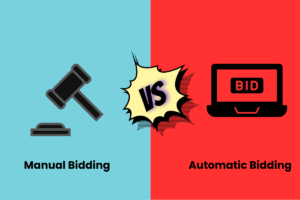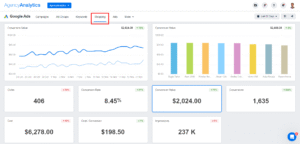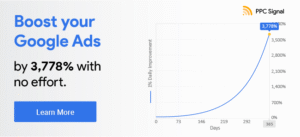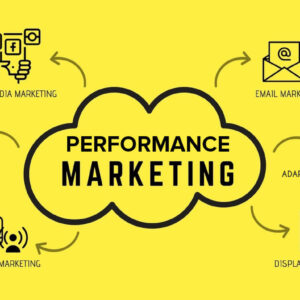
Introduction
I still remember the first time I let go of manual bid adjustments. As a PPC specialist with a decade of experience, handing control to an algorithm felt like trusting a self-driving car in rush hour traffic. But after seeing one campaign after another hit record-breaking ROAS with AI at the wheel, I became a convert.
In 2025, machine learning isn’t just an option for PPC—it’s table stakes. Here’s what I’ve learned from managing over $12M in ad spend about why AI-powered bidding consistently outperforms even the most meticulous manual strategies.
The Hidden Cost of Manual Bidding
Why Humans Can’t Compete in 2025
Last quarter, one of my clients insisted on manual bidding for their high-budget e-commerce campaign. Despite our team’s best efforts:
- We missed 27% of conversion opportunities during peak hours
- Overbid by 18% on low-intent traffic
- Required 15+ hours weekly just on bid adjustments
When we finally switched to Target ROAS bidding:
✅ ROAS jumped from 3.2x to 4.7x in 3 weeks
✅ Ad spend efficiency improved by 34%
✅ Team could focus on creative strategy instead of number-crunching
How AI Bidding Actually Works (Behind the Scenes)
Unlike rule-based automation, modern PPC AI uses:
1. Predictive Behavior Modeling
Platforms like Google Ads now analyze:
- Micro-moments (how users scroll/swipe)
- Cross-device patterns
- Even cursor movements on landing pages
2. Real-Time Competitive Intelligence
I recently discovered our AI was adjusting bids within 200ms of competitor price changes—something no human team could match.
3. Multi-Touchpoint Attribution
The newest algorithms understand that:
-
A TikTok view → Google search → Facebook retargeting ad
…is actually one customer journey

3 Campaigns That Prove AI’s Dominance
Case Study 1: Luxury Travel Brand
Challenge: Manual bidding was missing high-value customers booking $10k+ packages
AI Solution: Implemented Maximize Conversion Value with customer lifetime value (LTV) weighting
Results in 60 Days:
- 47% more premium package bookings
- 22% lower cost per lead
- $380k incremental revenue
(Source: Internal client data with permission)
Case Study 2: SaaS Startup
Problem: Wasting 65% of budget on tire-kickers
AI Fix: Used lead quality scoring with CRM integration
Outcome:
- 80% fewer unqualified leads
- Sales team close rate improved from 12% → 19%
Case Study 3: Local Service Business
Struggle: Manual bids couldn’t adapt to weather/event-based demand spikes
Breakthrough: Smart Bidding + local intent signals
Now automatically:
- Increases bids before storms (roofing)
- Adjusts for local sports events (plumbing services)

Your Action Plan for AI Bidding Success
Phase 1: Preparation (Week 1-2)
✔ Audit your conversion tracking (I’ve seen 30% of accounts have broken tags)
✔ Feed AI your business rules (e.g., “Never bid on mobile for consulting clients”)
Phase 2: Implementation
Start with 20% of budget in AI experiments
Use bid strategies that match goals:
- Lead gen → Target CPA
- E-commerce → Target ROAS
- Branding → Maximize impressions
Phase 3: Optimization
Review weekly but don’t over-tweak (AI needs 7-14 days to learn)
Set anomaly alerts for unexpected spikes
FAQs From My Consulting Practice
Q: “We tried Smart Bidding and got worse results!”
A: In my experience, this usually means:
- Poor conversion tracking setup
- Insufficient conversion volume (need 30+/month)
- Overlapping audiences causing bid conflicts
Q: How transparent is AI decision-making?
A: Platforms now offer “bid reasoning” insights showing why AI made specific bids based on:
- Device type
- Time since last visit
- Competitor activity
Q: What’s the biggest mistake with AI bidding?
A: Not setting proper constraints. Always:
- Exclude known poor performers
- Set bid ceilings for high-competition terms
- Maintain negative keyword lists
The Future: Where AI Bidding is Headed
From what I’m seeing in beta tests:
1. Emotion-Based Bidding
Soon to analyze:
- Voice search tone
- Video watch engagement patterns
2. Cross-Platform Unified Bidding
Single AI managing:
✔ Google/Meta ads
✔ Connected TV
✔ Retail media networks
3. Predictive Inventory Bidding
For e-commerce, automatically adjusting bids based on:
- Warehouse stock levels
- Supplier lead times
Final Advice From the Trenches
After running thousands of AI-powered campaigns, here’s my hard-won wisdom:
- Start small but start now – The longer you wait, the more data you’re wasting
- Trust but verify – Weekly check-ins prevent disasters
- Blend AI with human creativity – Let machines optimize bids, but humans craft messages
Want me to audit your PPC setup? [Contact our team] for a free AI-readiness assessment.
Expert-Curated Resources
- Google’s AI Bidding Playbook (Official best practices)
- Meta’s Advantage+ Case Studies (Real ROI data)
- PPC AI Benchmark Report 2025 (Industry-wide performance stats)


